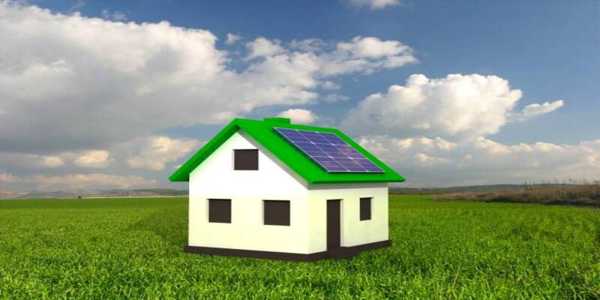As global cognizance shifts inexorably towards more sustainable domiciliary paradigms, eco-villages have emerged as an alluring alternative for those seeking an ecologically integral lifestyle. These enclaves transcend superficial green aesthetics, embodying a synergistic rapport with nature and fostering an ineffable sense of communal cohesion. Investing in eco-villages proffers a sui generis opportunity for those vested in sustainable real estate and eager to partake in this burgeoning, albeit esoteric, movement.
The Ascendancy Of Eco-Villages
Eco-villages are assiduously conceived with sustainability as their sine qua non. These microcosms prioritize energetic efficiency, the exploitation of renewable resources, and a temporary ecological footprint. Typically, habitations within these sanctuaries are meticulously constructed using environmentally congruent materials and energized by renewable sources such as heliocentric and mnemonic systems. For the sagacious investor, eco-village opportunities afford an entrée into a real estate sector that resonates with environmental ethics while offering prospects for pecuniary amplification.

Merits Of Investing In Eco-Villages
Investing in eco-villages furnishes manifold advantages, accruing benefits both for the individual and the biosphere:
- Sustainable real estate ventures that significantly curtail anthropogenic carbon emissions and mitigate ecocidal degradation.
- An augmented sense of community predicated on shared resources and synergistic endeavors towards sustainability.
- There is potential for longitudinal financial dividends as eco-village opportunities gain momentum and market demand escalates.
Defining Characteristics Of Eco-Villages
When contemplating investing in eco-villages, it is paramount to apprehend the defining attributes that delineate these communities:
- Renewable Energy Systems: Most eco-villages harness heliotropic panels, anemometric turbines, and other renewable energy modalities to sustain domiciles and communal precincts.
- Environmentally-Conscious Construction Materials: Residences are erected utilizing sustainable substrates such as reclaimed lignum, biogenic insulation, and hypoallergenic finishes.
- Community-Centric Design: Eco-village opportunities frequently incorporate agglomerative gardens, collaborative workspaces, and other zones designed to encourage interaction and symbiosis among denizens.
- Sustainable Infrastructure: Many eco-villages integrate hydric conservation systems, comprehensive detritus recycling programs, and organic agronomical practices.
Financial Implications
While investing in eco-villages may appear quixotic to some, it is concurrently a pragmatic fiscal decision. Sustainable real estate has demonstrated fortitude within the market, particularly as more individuals gravitate towards environmentally amicable living arrangements. Properties within eco-villages frequently maintain or appreciate value due to their unparalleled appeal and the escalating demand for sustainable habitation.
However, conducting meticulous due diligence is imperative before committing to an investment. Variables such as geospatial location, communal scale, and the specific sustainability practices deployed can all influence the eventual success of your investment. Seek out eco-village opportunities with a proven track record or strategically situated in locales with high demand for sustainable real estate.
Challenges And Considerations
Although investing in eco-villages confers numerous benefits, certain challenges merit contemplation:
- Elevated Initial Costs: The preliminary investment in sustainable real estate may be more substantial due to the premium on eco-compatible materials and renewable energy apparatuses.
- Regulatory Complexities: Zoning ordinances and other legislative impediments can occasionally obfuscate the development or expansion of eco-villages.
- Community Commitment: Residing in an eco-village frequently necessitates a robust commitment to collective living and sustainable praxis, which may not be universally suitable.
Emerging Trends In Eco-Village Development
Investing in eco-villages transcends the mere acquisition of property; it is embracing a forward-thinking lifestyle symbiotic with the burgeoning global trajectory towards sustainability. As the zeitgeist shifts towards more innovative and environmentally consonant living paradigms, sustainable real estate within eco-villages is evolving as intricate as it is transformative.

Technological Integration In Eco-Villages
- Decentralized Smart Grids: These advanced systems facilitate the rational distribution of electrical power, optimizing exergy utilization across the eco-village with remarkable efficacy.
- Autonomous Exergy Management: Sophisticated systems autonomously regulate energy flux in real-time, minimizing waste and promoting eco-efficiency.
- IoT Environmental Sentinels: These high-fidelity devices continuously monitor ambient conditions.
Socioeconomic Benefits Of Eco-Villages
- Equitable Housing: Numerous eco-villages incorporate housing paradigms that cater to a broad spectrum of income strata, ensuring robust socioeconomic diversity.
- Resilient Local Economies: The focus on indigenous production and consumption within eco-villages fosters economic autarky and resilience, insulating these communities from broader market volatilities.
- Multi-Generational Ecosystems: The architectural design of these communities often encourages intergenerational interaction.
Investment Diversification Through Eco-Villages
- Portfolio Diversification: Investing in eco-villages allows investors to diversify their asset allocations within a burgeoning and relatively stable market segment.
- Economic Autarky: Properties within eco-villages often exhibit greater insulation from the capricious urban market dynamics, offering more resilient long-term returns.
- Sustainable Appreciation: As the demand for sustainable living solutions escalates, the intrinsic value of properties within eco-villages is poised for appreciable growth.
Environmental Stewardship And Conservation
- Biotic Restoration: Many eco-villages spearhead restoration initiatives, rehabilitating ecosystems and augmenting biodiversity by reintroducing native flora and fauna.
- Habitat Preservation: Eco-villages frequently integrate protected biomes to support local wildlife, contributing to regional ecological equilibrium.
- Aquifer Recharge: Advanced hydrological management systems in eco-villages ensure the sustainable utilization of aquifers, which is particularly vital in xeric or drought-prone regions.
Cultural And Educational Enrichment
- Sustainability Symposia: These eco-villages regularly convene symposia focused on sustainable practices, enriching the insight and expertise of their residents.
- Communal Cultural Programs: Eco-villages frequently host festivals and events that celebrate and perpetuate local culture, fostering a profound sense of identity and communal belonging.
- Pedagogical Initiatives: Many eco-villages collaborate with academic institutions to offer immersive environmental science and sustainability programs.
Strategic Placements Of Eco-Villages
- Panoramic Vistas: Many eco-villages are strategically nestled in locales of unrivalled natural splendour, offering breathtaking panoramas and a deep connection to the environment.
- Abundant Resources: Proximity to natural resources such as pristine watersheds, verdant forests, and fertile arable lands significantly enhances the self-sufficiency of these communities.
- Accessibility to Services: While often remote, many eco-villages ensure access to essential services such as healthcare, education, and commerce.
Prospective Innovations In Eco-Villages
- Bioclimatic Architecture: Future eco-villages may adopt bioclimatic designs that harmonize with local climatic conditions, reducing the need for artificial heating and cooling.
- Autarkic Food Systems: Emerging eco-villages might integrate permaculture or vertical farming techniques to achieve food sovereignty, eliminating reliance on external food supply chains.
- Zero-Carbon Communities: The ultimate aspiration for many eco-villages is to achieve a zero-carbon footprint.
Conclusion
Eco-village opportunities epitomize an emergent niche within the real estate market, offering investors a rare chance to harmonize their financial aspirations with their environmental convictions. With the burgeoning demand for sustainable real estate, these communities are poised to gain increasing prevalence in the ensuing years. By judiciously evaluating the attendant benefits and challenges, investors can make perspicacious decisions that augment their financial prosperity and the planet's well-being. Investing in eco-villages transcends mere fiscal prudence.